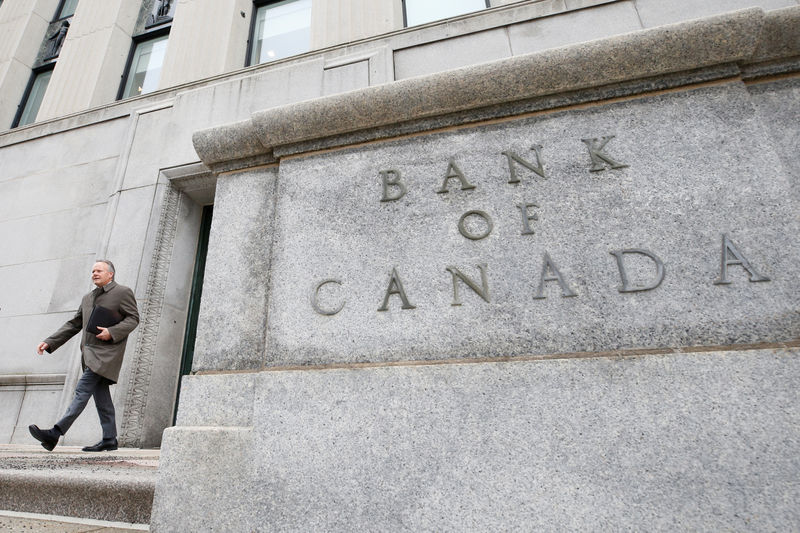By Kelsey Johnson
OTTAWA, Sept 5 (Reuters) - The Canadian economy is showing "a welcome degree of resilience" to negative shocks, a senior Bank of Canada official said on Thursday, giving little indication as to whether a rate cut might be imminent.
Bank of Canada Deputy Governor Lawrence Schembri made his comments a day after the central bank held its key rate steady at a time when the U.S Federal Reserve and other institutions have eased borrowing costs.
Canada's economy, Schembri said, "has clearly gotten past its earlier soft patch" thanks to strong labor data and a rebounding housing market.
"This solid starting point means the economy has a welcome degree of resilience to possible negative economic developments," he told a business audience in Halifax, Nova Scotia.
Although market analysts had been looking for clues in Schembri's speech as to the bank's thinking on rate cuts, he made no mention of possible future moves. Markets currently think there is around a 54% chance the bank will ease on Oct 30, it next scheduled announcement date.
Canada is on the brink of a national election campaign, a period during which the central bank traditionally stays quiet. Canadians go to the polls on Oct 21.
While the escalating trade war between the United States and Chine remains the biggest downside risk to the trade-dependent Canadian economy, Schembri said, Canadian inflation remains around its 2% target.
Canada's central bank has shown no appetite for cutting rates amid steady domestic activity, opting to sit on the sidelines since last October.
On Thursday, Schembri said Canada's central bank will continue to "conduct monetary policy appropriate to our own circumstances," adding Canada's current overnight rate - at 1.75% - is 50 basis points lower than the U.S Federal Reserve.
Schembri also noted recent market concerns about inverted bond-yield curves, which he said have traditionally been seen as a sign of a future recession.
"Today, with interest rates so low to begin with, an inverted curve is more likely a sign that investors foresee weaker long-term growth," he said.
